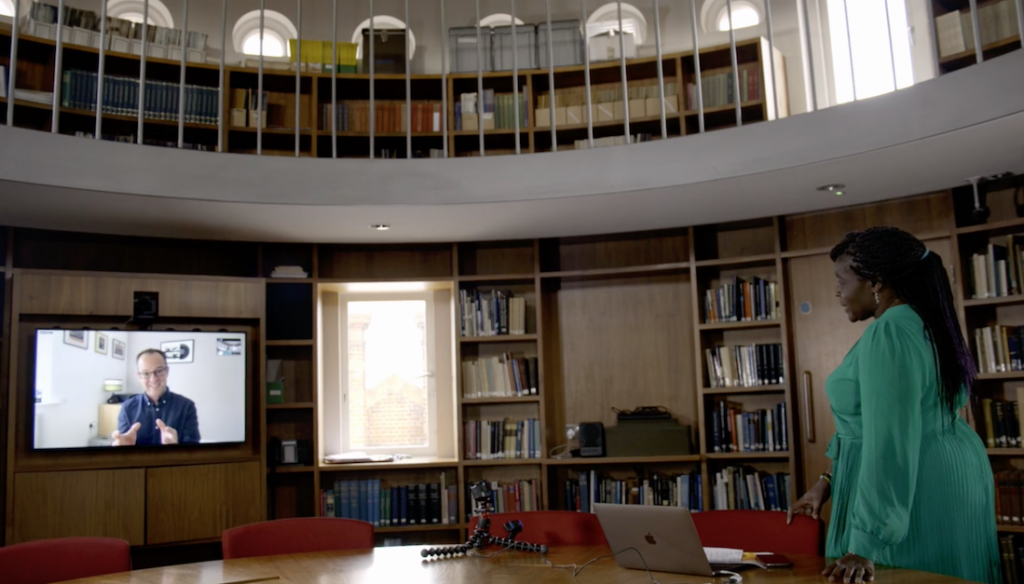Dr. Leigh Fletcher appeared as a guest on November’s Sky at Night to discuss the potential for life across the Solar System.
In the late summer of 2020, the news of potential biomarker gases at the cloud tops of Venus caused tremendous excitement in the planetary community and beyond. Could this be evidence of lifeforms in the upper atmosphere of Venus, producing phosphine gas at a location where there shouldn’t be any?
Although the evidence has been called in to question, and remains a topic of active and ongoing research, the BBC Sky at Night team were keen to explore the importance of the discovery across the field of planetary science. The scientific exploration of Venus remains compelling, with or without the presence of life in the temperate regions of the clouds. But we continue to search elsewhere too – from the frozen permafrost of Mars, to the sub-surface oceans of the moons of the giant planets.
Leigh Fletcher is a member of ESA’s Jupiter Icy Moons Explorer (JUICE) mission, scheduled to launch in 2022 for a long voyage to Jupiter. When it arrives in 2029, it will conduct detailed explorations of the icy satellites Europa, Ganymede and Callisto, before becoming the first spacecraft in history to orbit an icy moon, Ganymede.

Leigh spoke to Maggie Aderin-Pocock via Zoom – the BBC filmcrew were at the Royal Greenwich Observatory, and spoke to a number of researchers from the library. They discussed the potential for habitable conditions in sub-surface oceans, Cassini’s findings at Enceladus, and the potential discoveries by the JUICE mission. You can still catch up on the episode via the BBC iPlayer:
https://www.bbc.co.uk/iplayer/episode/m000p9s7/the-sky-at-night-life-beyond-venus

 Subscribe to Physics & Astronomy's posts
Subscribe to Physics & Astronomy's posts
Recent Comments